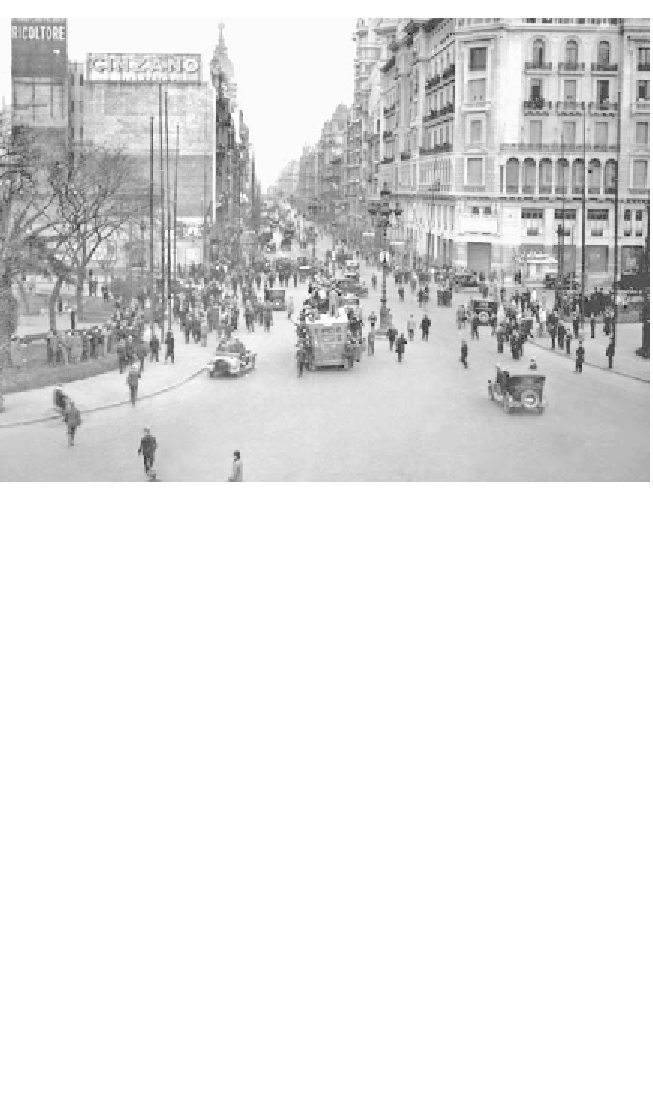Travel Reference
In-Depth Information
Large crowds turned out in Buenos Aires in September 1930 to support the coup d'état led by
General José Uriburu that ousted President Hipólito Yrigoyen.
(Archivo General de la Nación)
normalcy” (Potash 1969, I:44). The deepening depression did not help
the president to hold onto his office.
The conspiracy was no secret. Prominent civilians sobered by the
economic crisis also questioned Yrigoyen's abilities and called for dras-
tic action against him; the political opposition hoped to profit from the
Radical's demise and stood by. Even Yrigoyen's vice president did noth-
ing, as he may have expected to be promoted to the presidency by the
military conspirators.
On September 6, 1930, the resolute Uriburu faction took the initia-
tive. Six hundred cadets from the military academy and 900 troops from
the Campo de Mayo army base marched down Buenos Aires's Avenida
San Martín toward the presidential palace, the Casa Rosada. Yrigoyen
fled to La Plata, as large crowds turned out to cheer on the military
procession. Ultimately no one in the military or from the civilian sec-
tors openly opposed the coup, and Yrigoyen was imprisoned briefly
before being allowed to return quietly to his home in the capital. Public
opinion supported this breach of constitutional rule, and singer Carlos
Gardel recorded a congratulatory tango:



